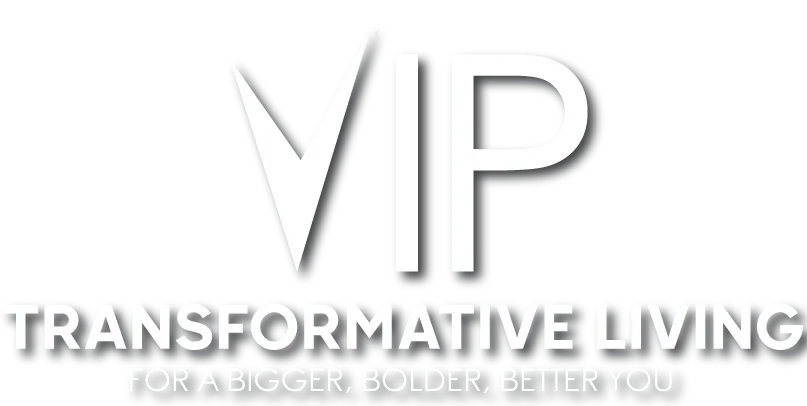Welcome To VIP Transformative Living
Our mission is to support men of color in navigating life's transitions with confidence and success. Through coaching and guidance, we help them become resourceful by aligning their values, identity, and purpose, enabling transformative breakthroughs in their careers, relationships, and health.
Welcome To VIP Transformative Living
Where our mission is to empower aspiring men of color to successfully navigate life transitions. We coach and guide men of color to be resourceful by aligning their values, identity, and purpose to achieve transformative breakthroughs in their careers, relationships, and health.
About Us
Helping Businesses and Individuals Achieve Their Goals
We exist to empower aspiring men of color to successfully navigate life transitions. We coach and guide men of color to be resourceful by aligning their values, identity, and purpose to achieve transformative breakthroughs in their careers, relationships, and health.


About Us
Helping Businesses and Individuals Achieve Their Goals
We exist to empower aspiring men of color to successfully navigate life transitions. We coach and guide men of color to be resourceful by aligning their values, identity, and purpose to achieve transformative breakthroughs in their careers, relationships, and health.
★★★★★
Testimonials
Here is what midlife men are saying:
Benard Campbell
Realtor & Investor
Adom Cooper
Lawyer/National Security Expert
Jomar Benoit
Global Logistics Real Estate Expert
This Will Change Your Life
Introducing Our Video Course...

Breaking Free: Discover Your Purpose, Power And Prosperity In Midlife
Don't miss out on unlocking your full potential.
Grab our exclusive video course now and supercharge your success.
Why Do We Need A Coach?
★★★★★
Testimonials
Benard Campbell
Realtor & Investor
Adom Cooper
Lawyer/National Security Expert
Jomar Benoit
Global Logistics Real Estate Expert
Free Resource
Introducing Our e-Book...

Breaking Free: Discovering Your Purpose, Power And Prosperity In Midlife
If you’re ready to get started and you know you’re in the right place to break free of your current midlife crisis and claim your birthright, claim a life of purpose, power, and prosperity.
Our Gift To You
Introducing Our Video Course...
Breaking Free: Discovering Your Purpose, Power And Prosperity In Midlife
Don't miss out on unlocking your full potential.
Grab our exclusive video course now and supercharge your success.
Free Resource
Introducing Our Free Book...
Breaking Free: Discovering Your Purpose, Power And Prosperity In Midlife
If you’re ready to get started and you know you’re in the right place to break free of your current midlife crisis and claim your birthright, claim a life of purpose, power, and prosperity.
Why Do We Need A Coach?
Coaches play a crucial role in personal and professional development for a variety of reasons. Here are some key reasons why people seek the guidance of a coach.
Get In Touch :)
We value your feedback, questions, and suggestions. Whether you have a query, want to give us feedback, or simply want to get in touch, we're here to help. Please feel free to reach out to us through the option provided below.
Get In Touch :)
We value your feedback, questions, and suggestions. Whether you have a query, want to give us feedback, or simply want to get in touch, we're here to help. Please feel free to reach out to us through the option provided here ➡️
Our Blogs & Newsletter

Prevent Overeating With A Few Simple Adjustments
Prevent Overeating With A Few Simple Adjustments
In this fast-paced world, it's easy to overlook when your eating gets out of control. Like many others, you've likely adjusted to doing everything quickly because it always seems like you're running out of time! But if there's one thing you can't overlook, it's your eating habits.
Important eating habits to notice are:
What you eat
Where you eat
When you eat
How you eat
All four elements are crucial to ensuring that you keep your meal portions under control.

These easy adjustments take the crucial elements into account to help stop you from overeating:
1. Use smaller serving utensils. You'll end up putting smaller portions on your plate, which results in eating less at each sitting.
Avoid scraping food from the serving dish onto your plate. There's absolutely no way to gauge how much you consume when you serve this way.
Use knives to slice meats and casseroles so you can control the portions.
2. Eliminate distraction while eating. Try this experiment: Compare your portions and time spent eating on two different nights. One night, eat while you're engrossed in your favorite TV series. On the second night, eat when you're seated at the dinner table without distractions.
You may discover that when you're distracted, you end up losing track of how much food you’re consuming.
Try not to eat meals in front of the TV. TV time is TV time, and meal time is meal time. Mixing both will likely result in overeating.
When at work, allow yourself enough time to get up from your desk and have your meal in the cafeteria. Sure, you can get more work done when you work through your lunch time, but you're also doing your body a disservice.
3. Put down your fork in between bites. It's very likely that if you keep your fork in your hands as you chew, you'll have the urge to load it while you're still chewing and take another bite right away. This can have negative effects and cause you to eat more than you really need.
Practice putting the fork down in between bites. The continuous drill of having to put the fork down and pick it up again will likely leave you pretty fed up after a while! You'll probably end your meal sooner.
Doing this will also help you to concentrate on how you chew your food.

4. Chew your food longer. If you train yourself to chew longer, you'll discover how much more quickly you feel full.
It takes your body a little time to sense the presence of food, and if you chew and swallow faster than your body can sense the food, you'll end up going overboard.
As a rule of thumb, try chewing each mouthful between 30 and 40 times to aid proper digestion. The more broken down the food is, the easier it is for your body to process it.
Boredom is also likely to set in when you’re chewing slowly. From boredom comes the desire to move on to another activity, so you'll probably put the food away.
Sure, it’s easy to overeat, but as you can see, it's also pretty easy to curb that habit. Just make a few simple changes and you'll find yourself more in control of what, how, where, and when you eat. Your body will thank you!

Subscribe To Our Weekly Newsletter
This covers exclusive content for black men over 40 and the (women who love them) touching on health, career, finance, and relationships.



